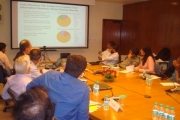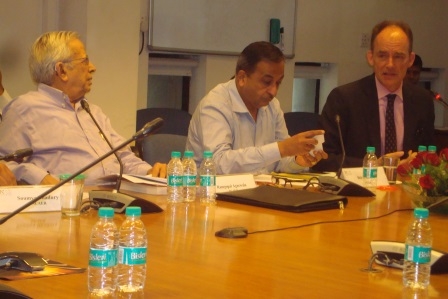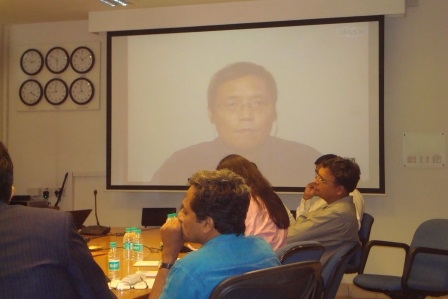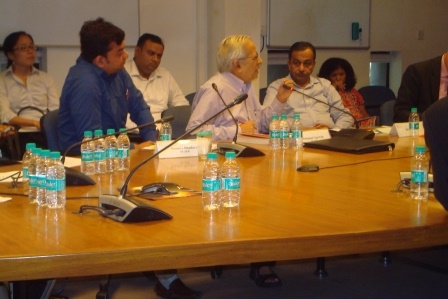What does China`s Rebalancing Mean for the Rest of Asia?
05 Sep 2016
Past Event

In recent years, China has moved to “rebalancing” its economy away from a dependence on exports and investment to increasing domestic consumption. What will a rebalanced China look like? What will the rest of the world, and Asia with a rebalanced China in it, look like? This seminar organised by NCAER addressed these issues with Dr Paul Gruenwald of S&P Global Ratings based out of Singapore. Dr Ramgopal Agarwala (former World Bank) and Dr Soumya Bhadury (NCAER) joined as discussants. Dr Shunli Yao (former NCAER) also joined the discussions via video conferencing.
China’s rebalancing story has two sides: (i) changes in the composition and sources of Chinese GDP growth, and (ii) how the rest of Asia (and the world) would adjust to those changes. China is not the textbook “small open economy,” and changes in China are already having measurable impacts on all its trading partners. A major challenge for analysts is to figure out the impact of these developments for the rest of the Asia-Pacific region. Does the region gain or lose from China’s rebalancing towards more consumption and service-led growth? How will individual economies in Asia fare? And what would be the implications for individual sectors that are important for Asia? Taken together, which factors and policies will be most important in determining the countries that will themselves successfully “rebalance” around China? The talk by Dr Gruenwald and following discussions with a host of participants concentrated on these issues.
Paul Grunewald is the Chief Economist for Asia-Pacific at S&P Global Ratings based in Singapore. Grunewald previously worked with the ANZ Banking Group and was also its Chief Economist for Asia-Pacific. He was earlier with the IMF for nearly 16 years, leading the team producing the IMF’s Asian Regional Outlook Reports. Paul has a PhD in economics from Columbia University and a bachelor’s degree in economics and mathematics from the University of Texas.
Ramgopal Agarwala is presently Honorary Senior Fellow at NCAER. In addition, he is the Chairman of Pahle India Foundation and was until recently, Distinguished Fellow, RIS. He has worked in various senior positions in the World Bank for 25 years with his last posting to Beijing being as the Chief Economist of the World Bank in China. Ram has a PhD in econometrics from Manchester University and an MA in economics from Presidency College, Kolkata.
Shunli Yao is Director of the Institute for Applied International Trade, a Beijing-based independent think tank. He specialises in international economics, with a particular interest in Chinese foreign trade. He is a founding member of the Asia Pacific Research and Training Network on Trade (ARTNeT). In March 2014, he was a visiting fellow at NCAER. He has taught at universities in Australia, Hong Kong and mainland China. Shunli holds a PhD in economics from the University of California at Davis.
Soumya Bhadury has recently joined NCAER as an Associate Fellow. Prior to joining NCAER, Bhadury taught at the University of Kansas while working on his PhD there on bringing money back into monetary models of exchange rate determination. Bhadury’s interests broadly lie in macro and international economics with a special focus on the exchange rate, and monetary theory and policy.










